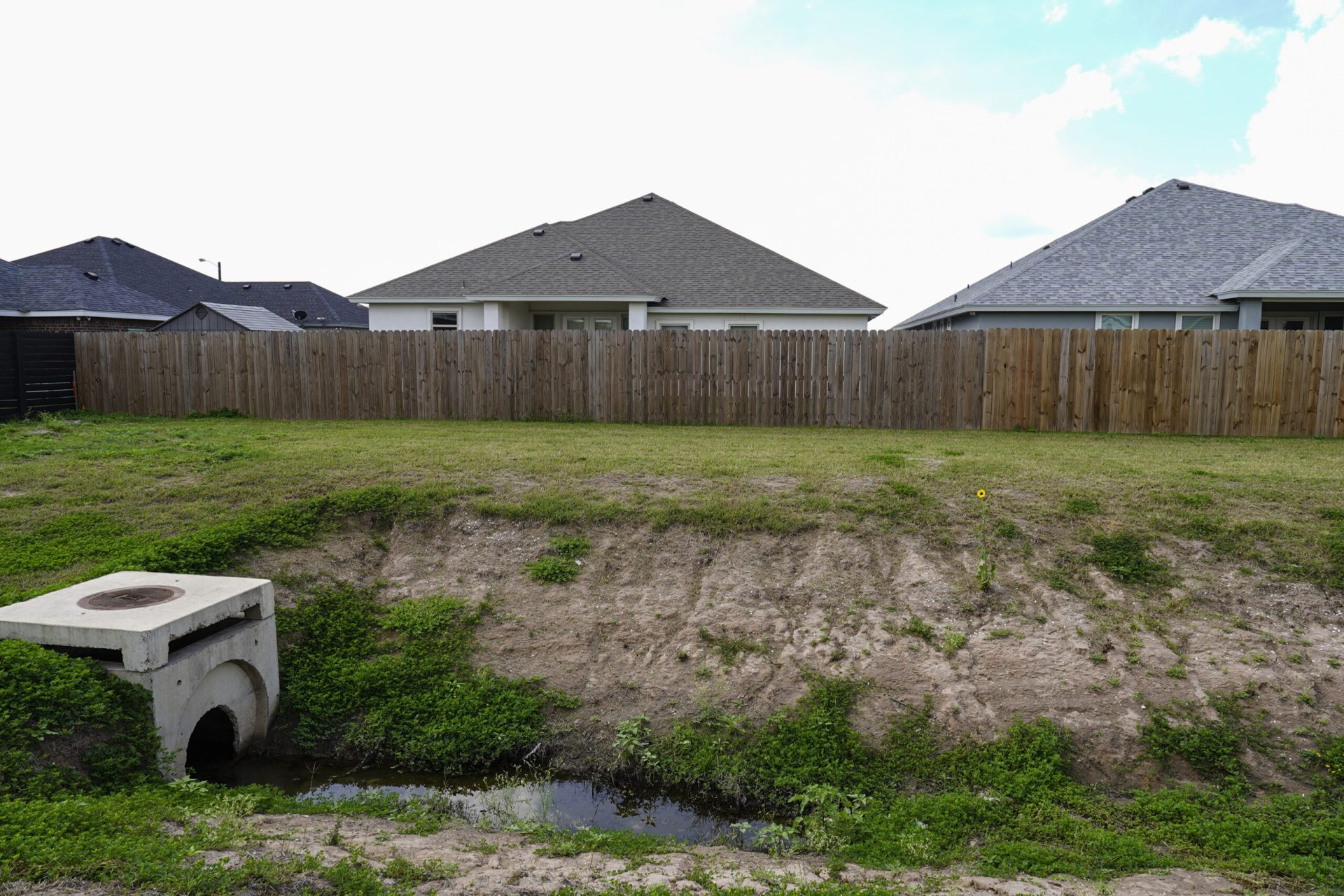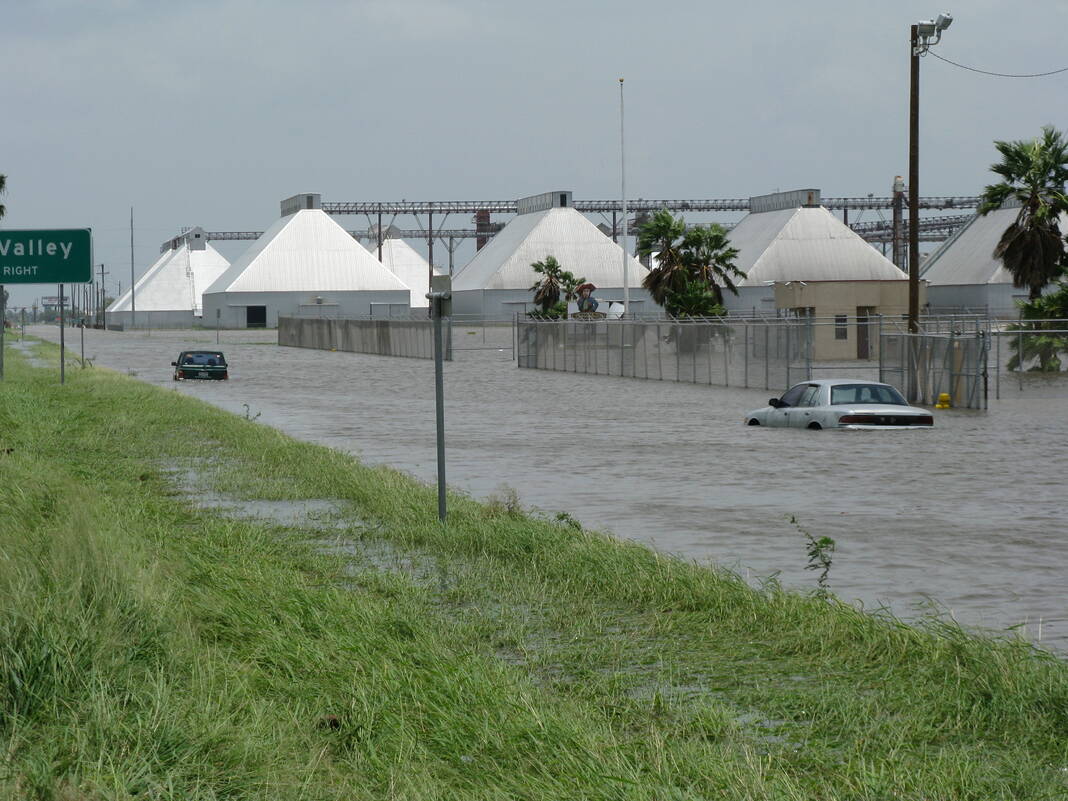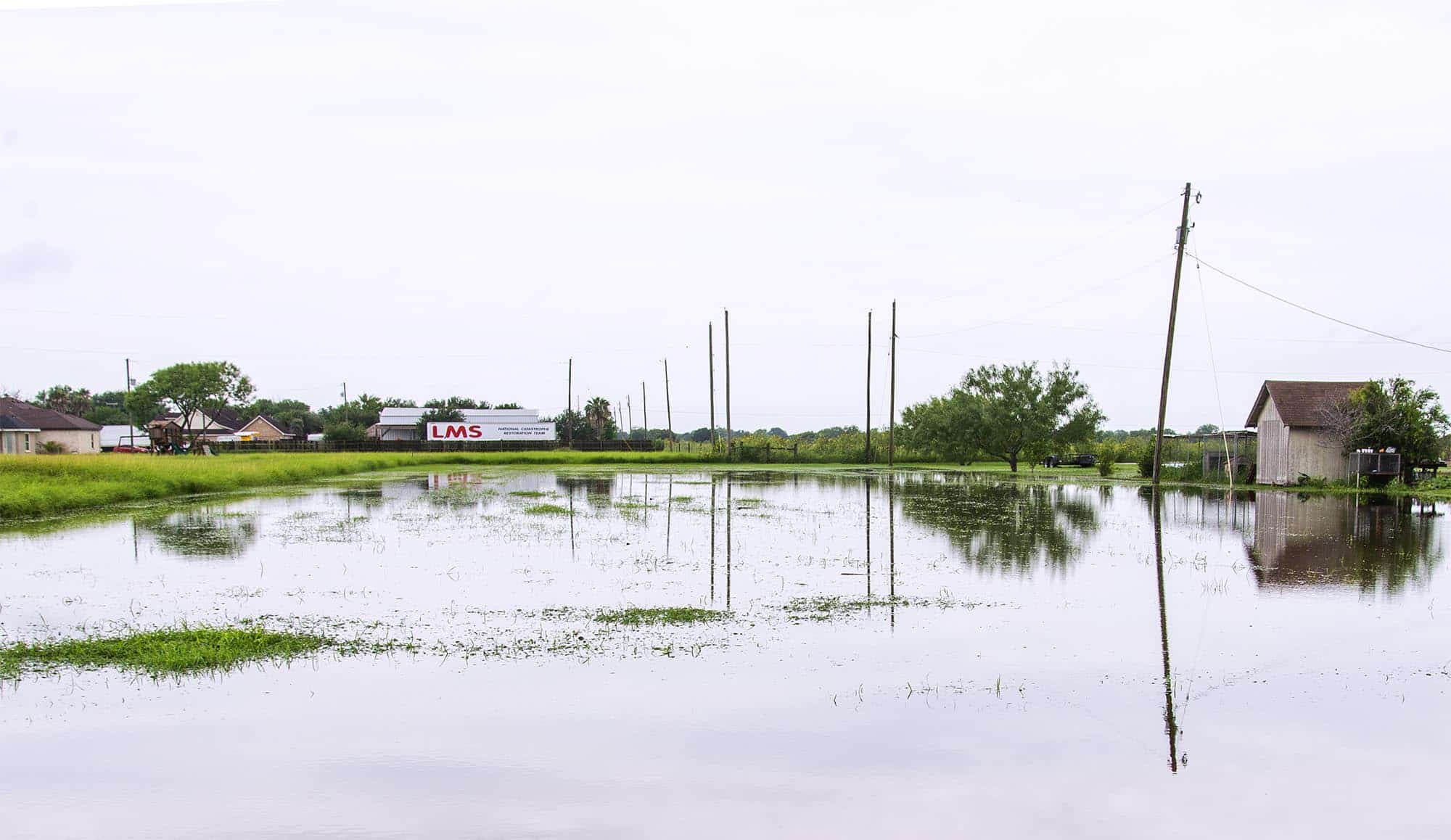HARLINGEN — Area leaders testified April 11 before lawmakers in support of legislation calling for revised funding criteria aimed at upgrading the low-income area’s drainage system.
Officials testifying before the Texas House Natural Resource Committee included Harlingen Mayor Norma Sepulveda, San Benito Mayor Rick Guerra, Combes Mayor Marco Sanchez, Harlingen City Commissioner Daniel Lopez and Rolando Vela, assistant manager of Cameron County Drainage District No. 5.
In the House of Representatives, State Rep. Janie Lopez has introduced two bills — H.B. 4742 and H.B. 4299.
Meanwhile, State Sen. Morgan LaMantia has filed S.B. 2182.


Calling for revised funding criteria
Before the Natural Resource Committee on April 11, Vela, who helped push for the legislation, called for revising funding criteria aimed at upgrading the drainage system in the low-income area amid challenges posed by the region’s flat landscape.
“The current funding system in place needs to be more comprehensive,” Vela said during an interview, adding the bills request loan forgiveness in the region whose local governments face low tax bases.
“We raised awareness of the challenges of our drainage system,” he said.
‘The beginning’
In Harlingen, where officials have funded about $20 million in drainage projects in the last 15 years, Sepulveda and Daniel Lopez called for regional drainage upgrades in the low-income area.
“If passed, this bill will give governmental entities, such as the city of Harlingen, new avenues to seek state funding to upgrade and expand our artificial drainage system,” Daniel Lopez stated. “We are currently spending millions of dollars working on fixing our sewer system, but it will all be for nothing if the drainage canals cannot handle our rainwater.”

Now, officials are pressing to widen and expand the North Main Drain while planning retention and detention ponds east and west of the Industrial Road choke-point, he stated.
“This will alleviate flooding in most of the city so long as we continue to upgrade our sewer system to quickly move water from our streets into the canals,” he stated. “I campaigned on infrastructure, economic development and public services. I intend to follow through on those promises, and this is only one small way I have done so. We will continue to push bills for the benefit of all Harlingen residents. This is only the beginning.”
Flood-prone region
Across the Rio Grande Valley, the region’s low-income and flat landscape pose unique funding challenges, Janie Lopez stated.
“Long-time residents and new residents alike have been vocal on the need to address the issues brought about by the RGV’s lack of water infrastructure,” she stated. “The lack of this infrastructure has led to thousands of residents across the RGV having to deal with flooded roads, destroyed crops and hundreds if not thousands of dollars in property damage when the region is faced with heavy rain. Unlike the bigger metropolitan cities across Texas, the terrain throughout the RGV is relatively flat. The land is rich and perfect for agricultural purposes but that same land leaves our current drainage systems to deal with the full force of heavy rain that tends to accumulate, and as a result leads to flooding.”

‘Economically distressed area’
Pushing H.B 4299, Lopez is requesting the Water Development Board consider funding criteria within the low-income region that includes pockets of affluent areas, Janie Lopez said during an interview.
“H.B. 4299 relates to the provision of financial assistance by the Texas Water Development Board for the development of certain projects in economically distressed areas, bringing attention to the residents living in colonias and less fortunate regions across the district,” the legislation states.
Revising low-interest loan criteria
Under H.B. 4742, Janie Lopez is requesting the Water Development Board consider grants and low-interest loans along with loan forgiveness.
“The board, by rule, shall establish a program that prioritizes the provision from the fund of grants or no-interest loans to a district or authority for the construction or improvement of an artificial drainage system and provides loan forgiveness for a loan (under Subdivision 1) for the construction of an artificial drainage system,” the legislation states. “The board by rule shall adopt scoring criteria to prioritize projects by a district or authority that are eligible for financial assistance under this section. The criteria must give priority to artificial drainage projects in areas with low or moderate income that have a regional effect and who serve communities for whom drainage problems have a demonstrated effect on human health.”

LaMantia cites strong support
In the Texas Senate, LaMantia has filed S.B. 2182.
“Senate Bill 2182 addresses financial assistance that would help drainage districts with much needed flood control,” she stated.
On April 11, LaMantia pointed to local leaders’ support of the House’s companion bill H.B. 4742.
“The Senate companion bill was heard in the House Natural Resources Committee this morning, and I was ecstatic to see a wide range of support from local leaders,” she stated. “Their testimonies along with adopted local resolutions verifies the importance of this piece of legislation. We are hopeful that the legislature will consider tweaking the Texas Water Development Board’s Flood Infrastructure Fund formula. Doing so would benefit many areas in Senate District 27.”
Loan forgiveness
The legislation requests the Water Development Board revise its funding criteria to better fund drainage projects in low-income areas.
“The board by rule shall adopt scoring criteria to prioritize projects by a district or authority that are eligible for financial assistance under this section,” the legislation states. “The criteria must give priority to artificial drainage projects in areas with low or moderate income that have a regional effect and who serve communities for whom drainage problems have a demonstrated effect on human health. Loan forgiveness described by Subsection (b)(2) may for a period not to exceed five years, annually forgive not less than 10 percent or more than 20 percent of a loan made from the fund under this section.”
To find a comprehensive list of bills filed — and the status of those bills — visit MyRGV.com and click the 88th Texas Legislative Session tab, which has an interactive spreadsheet and a comprehensive list of AIM Media Texas’ legislative coverage.




